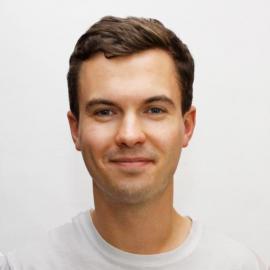Charlie Oliver is a One Young World Ambassador and is the Coordinating Ambassador for UK 1. He
It's less than twenty-four hours until the start of this year’s One Young World summit in Bangkok. This will be my third and I have to say that stakes have never been higher.
Everywhere I look, our world is moving to extremes.
Terrorist attacks in Paris and Beirut this month are the worst that both countries have seen for a long time. France has established its first nationwide state of emergency since 1961; following other attacks earlier in the year, including Charlie Hebdo in January.
Boko Haram have killed 100s of people in Nigeria, Chad and Cameroon. In April, Over 100 students were killed in Garissa, Kenya. Sana’a in Yemen has seen multiple attacks; and over 100 people were killed in Ankara, Turkey in October.
We've also seen attacks in Tunisia (Tunis in March and Sousse in June), in Copenhagen, in Kuwait during Ramadan; and even on a high-speed train bound for Paris, thwarted by a group of off-duty military personnel, one of whom was later stabbed back home in Sacramento, California outside a gay bar.
Notably, the venue where we will hold the One Young World conference this year is within a moments distance of the Erawan Shrine, the site of a terror attack that killed 20 people in August.
What's troubling about these incidents, is that many of the attackers, named or suspected, are Millennials. In Copenhagen, the attacker was 22, the one on the train is 25, Charlie Hebdo - 32 and 34; and those suspected of the most recent Paris attacks were in their mid to late 20s.
In the recent case of Paris, the attackers seemed to target their peers, focusing on areas of town where they expected to find young people - like the Canal Saint Martin; and the Bataclan Concert Hall.
What I'm saying in short, is that as a generation we are at risk of growing apart and in the most extreme cases, even killing each other!
This move to extremes is not limited to acts of terror, I also mean extreme in terms of climate change and the levels of social inequality we see today. Again, it is and will be our Millennial generation that suffer the most.
Today, 286m young people live in working poverty - on $4 a day or less. A further 73.3m young people are unemployed. The gap between rich and poor is expanding. This can't be sustainable.
Around 600,000 people have migrated to Europe this year from Syria, Iraq and Eritrea. The majority of them are Millennials.
In Ethiopia, 8.2m people require food aid owing to an extreme drought.
I usually write about Millennials in a positive sense, but my growing concern is that despite being the best connected and most collaborative generation ever, what many argue to be the world’s first truly global citizens, we are not doing enough to look out for each other.
And the bi-product of that is that we are increasingly living our lives in the extremities, through radicalisation, entrenchment and expansion of rich and poor; and a contrast between places that are liveable and unlivable.
The reason that's important is that global challenges like climate change and inequality give rise to displacement and radicalisation. They are interrelated.
The people involved in these events are Millennials, both as the protagonists and as the victims.
What that means for the Millennial leaders of One Young World is that they must take the lead. More than ever before.
As a gathering of 196 countries, we are well placed to use our network for good and take the lead in engaging our peer group and findings sustainable solutions. Our world needs leadership in the face of this adversity. I believe the One Young World network can play a major role in delivering this.
So let's seize the opportunity that our annual conference presents us. As Sir Bob has said, “the future is contingent on now.”
